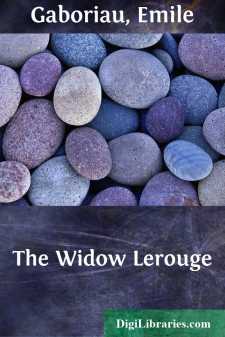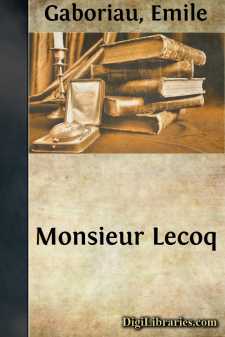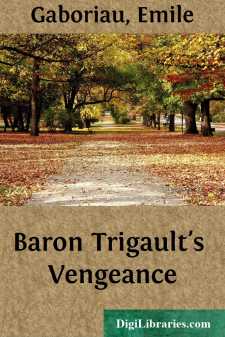Categories
- Antiques & Collectibles 13
- Architecture 36
- Art 48
- Bibles 22
- Biography & Autobiography 813
- Body, Mind & Spirit 142
- Business & Economics 28
- Children's Books 17
- Children's Fiction 14
- Computers 4
- Cooking 94
- Crafts & Hobbies 4
- Drama 346
- Education 46
- Family & Relationships 57
- Fiction 11829
- Games 19
- Gardening 17
- Health & Fitness 34
- History 1377
- House & Home 1
- Humor 147
- Juvenile Fiction 1873
- Juvenile Nonfiction 202
- Language Arts & Disciplines 88
- Law 16
- Literary Collections 686
- Literary Criticism 179
- Mathematics 13
- Medical 41
- Music 40
- Nature 179
- Non-Classifiable 1768
- Performing Arts 7
- Periodicals 1453
- Philosophy 64
- Photography 2
- Poetry 896
- Political Science 203
- Psychology 42
- Reference 154
- Religion 513
- Science 126
- Self-Help 84
- Social Science 81
- Sports & Recreation 34
- Study Aids 3
- Technology & Engineering 59
- Transportation 23
- Travel 463
- True Crime 29
The Clique of Gold
by: Emile Gaboriau
Categories:
Description:
Excerpt
I.
There is not in all Paris a house better kept or more inviting-looking than No. 23 in Grange Street. As soon as you enter, you are struck by a minute, extreme neatness, which reminds you of Holland, and almost sets you a-laughing. The neighbors might use the brass plate on the door as a mirror to shave in; the stone floor is polished till it shines; and the woodwork of the staircase is varnished to perfection.
In the entrance-hall a number of notices, written in the peculiar style which owners of houses affect, request the tenants to respect the property of others, without regard to the high price they pay for their share. "Clean your feet, if you please," they say to all who come in or go out. "No spitting allowed on the stairs." "Dogs are not allowed in the house."
Nevertheless, this admirably-kept house "enjoyed" but a sorry reputation in the neighborhood. Was it worse than other houses,—No. 21, for instance, or No. 25? Probably not; but there is a fate for houses as well as for men.
The first story was occupied by the families of two independent gentlemen, whose simplicity of mind was only equalled by that of their mode of life. A collector, who occasionally acted as broker, lived in the second story, and had his offices there. The third story was rented to a very rich man, a baron as people said, who only appeared there at long intervals, preferring, according to his own account, to live on his estates near Saintonge. The whole fourth story was occupied by a man familiarly known as Papa Ravinet, although he was barely fifty years old. He dealt in second-hand merchandise, furniture, curiosities, and toilet articles; and his rooms were filled to overflowing with a medley collection of things which he was in the habit of buying at auctions. The fifth story, finally, was cut up in numerous small rooms and closets, which were occupied by poor families or clerks, who, almost without exception, disappeared early in the morning, and returned only as late as possible at night.
An addition to the house in the rear had its own staircase, and was probably in the hands of still humbler tenants; but then it is so difficult to rent out small lodgings!
However this may have been, the house had a bad reputation; and the lodgers had to bear the consequences. Not one of them would have been trusted with a dollar's worth of goods in any of the neighboring shops. No one, however, stood, rightly or wrongly, in as bad repute as the doorkeeper, or concierge, who lived in a little hole near the great double entrance-door, and watched over the safety of the whole house. Master Chevassat and his wife were severely "cut" by their colleagues of adjoining houses; and the most atrocious stories were told of both husband and wife.
Master Chevassat was reputed to be well off; but the story went that he lent out money, and did not hesitate to charge a hundred per cent a month. He acted, besides, it was said, as agent for two of his tenants,—the broker, and the dealer in second-hand goods, and undertook the executions, when poor debtors were unable to pay....












